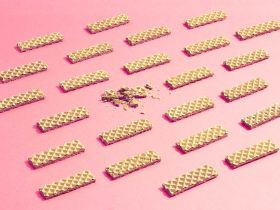By Leika Kihara and Takahiko Wada
TOKYO/GIFU, Japan (Reuters) -Bank of Japan board member Toyoaki Nakamura said on Thursday it was premature to tighten monetary policy, as recent increases in inflation were mostly driven by higher import costs rather than wage gains.
The central bank would take time to determine whether it can raise interest rates as it waits for evidence that a sustained economic recovery will eradicate Japan’s deflationary mindset, he said.
“The key is for the economy to keep recovering,” Nakamura told a news conference, when asked about the conditions for ending negative interest rates.
“Once there’s a general feeling Japan’s deflationary mindset has been eradicated, we won’t need yield curve control. But we’re not there yet,” he added.
His remarks contrast with those of board member Naoki Tamura, who signalled the chance of a policy tweak early next year, suggesting there was no consensus within the nine-member board on how soon the BOJ can scale back its massive stimulus.
A former executive of electronics giant Hitachi (OTC:) Ltd, Nakamura was a sole dissenter to the BOJ’s decision in July to allow long-term interest rates to rise more freely.
Although many firms raised pay this year, there was uncertainty on whether smaller companies can earn enough profits to keep hiking wages next year and beyond, Nakamura said.
“Sustainable, stable achievement of our 2% inflation isn’t in sight yet. We therefore need more time before shifting to monetary tightening,” he said, adding the key was to determine whether companies’ growth expectations were heightening.
“Japan is trying to emerge from 25 years of deflation. The decision (on when to end low rates) will take time,” he added.
Under its yield curve control (YCC) policy, the BOJ guides short-term interest rates at minus 0.1% and the 10-year government bond yield around 0% to reflate economic growth and sustainably achieve its 2% inflation target.
Nodding to criticism that its heavy-handed defence of the yield cap was distorting market pricing and fuelling unwelcome yen falls, the BOJ last month took steps to allow long-term rates to rise more in line with higher inflation.
With inflation having exceeded its target for the 16th straight month in July, markets are focusing on clues from BOJ policymakers on how soon the central bank could take bolder steps toward phasing out its radical stimulus.
Governor Kazuo Ueda has said the BOJ must maintain ultra-low rates until there is more evidence that Japan’s inflation can sustainably hit 2% backed by solid consumption and wage growth.
Markets are divided on whether the BOJ could remove the yield cap before raising short-term rates, ditch both simultaneously, or keep the yield cap when ending negative rates as a precaution against an abrupt rise in long-term yields.
BOJ officials have dropped few clues on the preferred sequence, saying only that the decision would depend on economic and financial conditions at the time.
Nakamura held a briefing in Gifu after delivering a speech and meeting business executives in the central Japan city.
Read the full article here













Leave a Reply